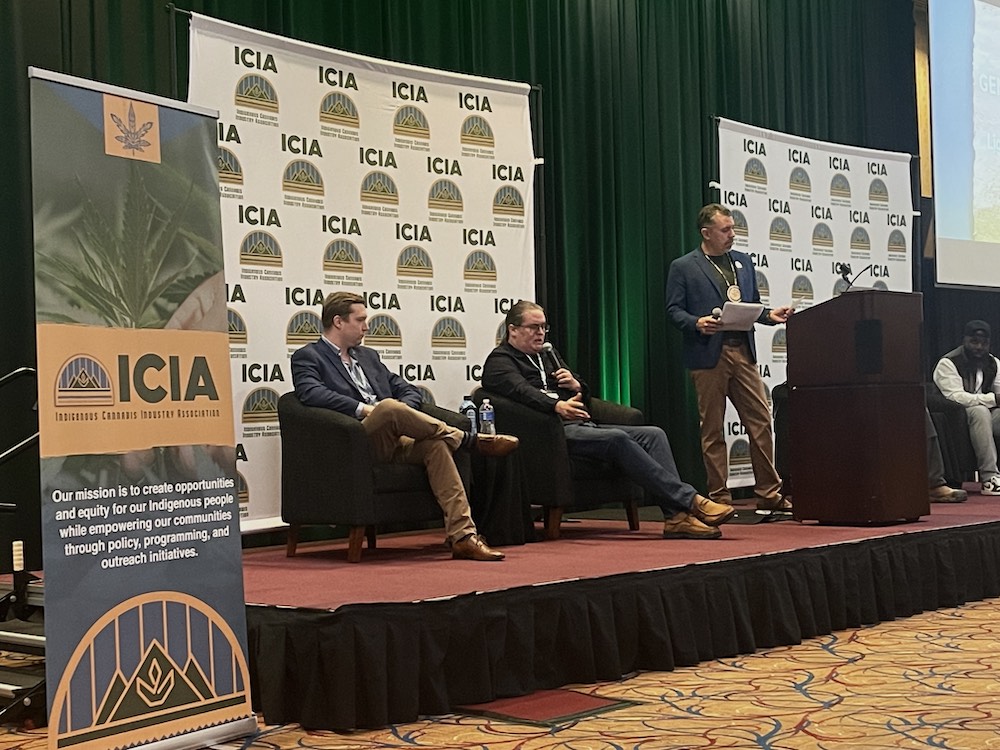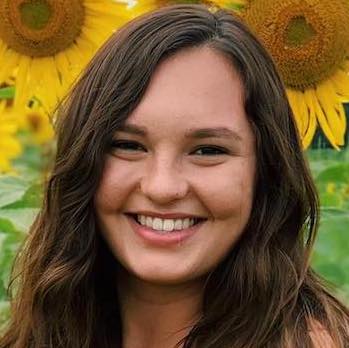
- Details
- By Kaili Berg
- Food | Agriculture
More than 150 Indigenous cannabis experts, tribal leaders and non-Native partners gathered last week on the Ho-Chunk Nation in Wisconsin for the second annual Wisconsin Cannabis Industry and Policy Summit, hosted by the Indigenous Cannabis Industry Association (ICIA).
The summit, held Feb. 29 at the Ho-Chunk Casino & Hotel in Baraboo, provided a platform for tribal cannabis education and advocacy, with discussions centered on public policy, legalization, industrial hemp, and medicinal cannabis. The one-day event featured a series of presentations, panel discussions and roundtables throughout the day.
After a welcome from Ho-Chunk President Jon Greendeer and traditional prayer, the summit kicked off with opening remarks from ICIA Founder Rob Pero (Bad River, Oneida) and the organization’s executive director, Mary Jane Oatman (Nez Perce, Delaware).
Wisconsin Governor Tony Evers delivered a video message to attendees, acknowledging strong public support for legalizing marijuana in the state and expressing hope for legislative progress. Evers also recognized the unique perspective of tribal leaders and communities as sovereign nations, messages that ICIA’s Oatman amplified in her remarks.
“It’s important that tribes step forward to lead this conversation about legalizing cannabis in states like Wisconsin, because we are at a point in our communities where we shouldn’t be waiting for permission, but rather taking the charge in leading diverse coalitions and bringing everyone to the table,” Oatman said. “Indigenous communities since time immemorial have had a relationship with plant medicine, and that has been hindered with the war on drugs.”
Following the opening, attorney Samantha Skenadore (Ho-Chunk), a partner at the law firm Patterson Earnhart Real Bird & Wilson LLP, led a discussion titled “Current State of Cannabis Policy” that outlined current legislation and legalization efforts in the state of Wisconsin. Skenadore emphasized the need for tribes to unite and form coalitions to effectively exercise their sovereignty, particularly in industries like cannabis where exploitation has been prevalent.
Cannabis is “about health. And It’s also about what we want to see for our tribal communities,” said Skenadore.
Next up, Pero hosted a “Lightning Talk on Hemp” delving into sustainability and environmental aspects of the plant with Marc Grignon, exploring hemp farming’s business potential for Indigenous communities with Brandon Wyatt, discussing hemp as a building material with Robert Larsen Jr., and examining Wisconsin’s prospects with hemp-derived products alongside Kerry Hinkle.
During the panel discussion, Wyatt, a decorated army combat soldier and disabled veteran, highlighted the multifaceted opportunities presented by industrial hemp beyond cannabidiol production.
“There's so many exciting things that come with industrial hemp that are totally separate from the ingestible cannabidiol aside, which is amazing,” Wyatt said. “But when it comes down to building homes, when it comes down to possibly creating alternative fuels, when it comes down to potential feedstock for livestock, we're still working on the Farm Bill and things to get pushed through. It presents a tremendous opportunity.”
In remarks after lunch, Tony Reider, president of the Flandreau Santee Sioux Tribe, outlined his tribe’s experiences and strategies in the cannabis industry, focusing on legal, regulatory, and partnership aspects. He emphasized the need for trusted partners and collaboration.
“There are many bad actors in the industry who take advantage of people. Without our partners' help, we wouldn’t have succeeded,” said Reider.
During a panel on policy and the regulatory framework, Jamie Santistevan, senior vice president at Denver-based Native American Bank, addressed the challenges of providing banking services to the cannabis industry on tribal lands. He emphasized the crucial role of Native-based financial institutions including Native community development financial institutions (CDFIs) and minority deposit institutions (MDIs) supporting Indigenous entrepreneurs.
“Even with decriminalization and the Safe Banking Act, I still think there's going to be a lot of reticence from banks to get into this space and even more specifically, the tribal banking space because non-tribal-based banks don't know how to deal with this on tribal land,” Santistevan said. “Native-based banks, CDFIs and MDIs that can support this industry are going to be very crucial as we move forward into this space (over the next) two to five years.”
As the day wound to a close, the summit’s organizers talked about some of the key takeaways from the day, highlighting the impactful unity between tribal and non-tribal communities in recognizing tribal sovereignty as the driving force behind the conversations on these important issues.
“The most impactful thing today was seeing both tribal and non-tribal communities aligned in recognizing tribal sovereignty as the leader in this conversation,” Oatman said. “It's empowering to hear non-Indigenous communities acknowledge the importance of tribal leadership on this issue, showing that organizations like ICIA are making significant progress.”
